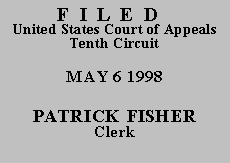

| GREG BRUMLEY,
vs.
SUSAN GABRIEL, Classifications
Manager, EDCF; MICHAEL A.
NELSON, Warden; DALE FRAZIER,
Unit Team Manager; WILLIAM
ADKINS, Unit Team; DAVID R.
MCCUNE, |
|
The district court never reached the merits, holding that Mr. Brumley had failed to exhaust administrative remedies in accordance with 42 U.S.C. § 1997e(a). Judgment was entered on July 5, 1996. Mr. Brumley moved for an extension of time to file a motion for reconsideration, but not before the ten day period in Fed. R. Civ. P. 59(e) had expired. Thereafter, Mr. Brumley's motion for reconsideration was filed, correctly construed as a Fed. R. Civ. P. 60(b) motion, and denied by the district court.
Our review is for an abuse of discretion. Although Mr. Brumley did not allege exhaustion, he included in his complaint a description of his efforts to bring his claims to the attention of prison authorities, see I R. doc. 2, ¶ 10(b-i), and a decision by the warden rejecting his claims, see id. exh. H. In his motion for reconsideration, Plaintiff acknowledged that his attempts to exhaust have been informal. See I R. doc. 8, ¶ 5(b) ("With no adequate formal administrative remedy available to him, Plaintiff has attempted to informally resolve this issue for eight months . . . .). In that motion he urged that (1) § 1997e did not apply because this was a Bivens action, (2) under prior law, the district court could have continued the action pending exhaustion and must do so now, (3) the federal courts have a duty to exercise jurisdiction, (4) exhaustion would be futile because no administrative remedy is available and the Kansas Department of Corrections has predetermined the issue. Grounds (1) - (3) are meritless, and the district court did not abuse its discretion in concluding that exhaustion should be required.
AFFIRMED. All pending motions are denied.
Entered for the Court
Paul J. Kelly, Jr.
Circuit Judge
*. This order and judgment is not binding precedent, except under the doctrines of law of the case, res judicata, and collateral estoppel. This court generally disfavors the citation of orders and judgments; nevertheless, an order and judgment may be cited under the terms and conditions of 10th Cir. R. 36.3.
**. After examining the briefs and the appellate record, this three-judge panel has determined unanimously that oral argument would not be of material assistance in the determination of this appeal. See Fed. R. App. P. 34(a); 10th Cir. R. 34.1.9. The cause is therefore ordered submitted without oral argument.